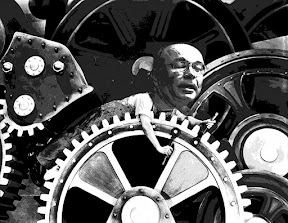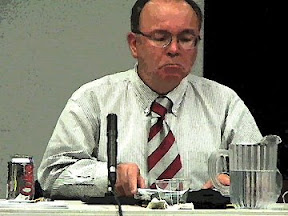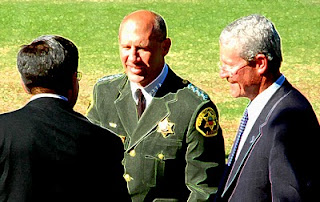Which colleges restrict free speech? (
Higher Ed Daily Report)
A new report from a national free speech advocacy organization found most of the four-year universities it surveyed had speech codes that substantially limit students' freedom of speech, including dozens of colleges in California.
In its annual report, the
Foundation for Individual Rights in Education surveyed speech code policies at the top 100 national universities and top 50 liberal arts colleges from
U.S. News and World Report, along with 237 colleges the organization labeled as "major public universities."
The "Spotlight on Speech Codes 2011" report gave colleges a red-, yellow- or green-light rating based on how much their policies restrict free speech.
Of the 390 schools reviewed,
67 percent got a red light, 27 percent got a yellow light and 3 percent got a green light. Another 3 percent got no rating because they were private institutions that flatly stated they hold certain values above a commitment to free speech, such as Pepperdine University in Malibu.
Of the 33 California universities the organization rated, 64 percent got a red light, including San Diego State University, UC Santa Cruz and Claremont McKenna College. About 36 percent got a yellow light, including UC Berkeley, Occidental College and San Jose State University. No California college received a green light.
As defined by the report, a red light means the university's policy clearly and substantially limits freedom of speech or bars public access to speech policies on the web. Three colleges got the red light label for requiring a password to view speech-related policies – including Stanford University….
Journal’s Paper on ESP Expected to Prompt Outrage (
New York Times)
 |
| Typical believer (Uri Geller) |
One of psychology’s most respected journals has agreed to publish a paper presenting what its author describes as strong evidence for extrasensory perception, the ability to sense future events.
The decision may delight believers in so-called paranormal events, but it is already mortifying scientists. Advance copies of the paper, to be published this year in
The Journal of Personality and Social Psychology, have circulated widely among psychological researchers in recent weeks and have generated a mixture of amusement and scorn.
The paper describes nine unusual lab experiments performed over the past decade by its author,
Daryl J. Bem, an emeritus professor at Cornell, testing the ability of college students to accurately sense random events, like whether a computer program will flash a photograph on the left or right side of its screen. The studies include more than 1,000 subjects.
Some scientists say the report deserves to be published, in the name of open inquiry; others insist that its acceptance only accentuates fundamental flaws in the evaluation and peer review of research in the social sciences.
“It’s craziness, pure craziness. I can’t believe a major journal is allowing this work in,”
Ray Hyman, an emeritus professor of psychology at the University Oregon and longtime critic of ESP research, said. “I think it’s just an embarrassment for the entire field.”
. . .
So far, at least three efforts to replicate the experiments have failed. But more are in the works, Dr. Bem said, adding, “I have received hundreds of requests for the materials” to conduct studies.

















